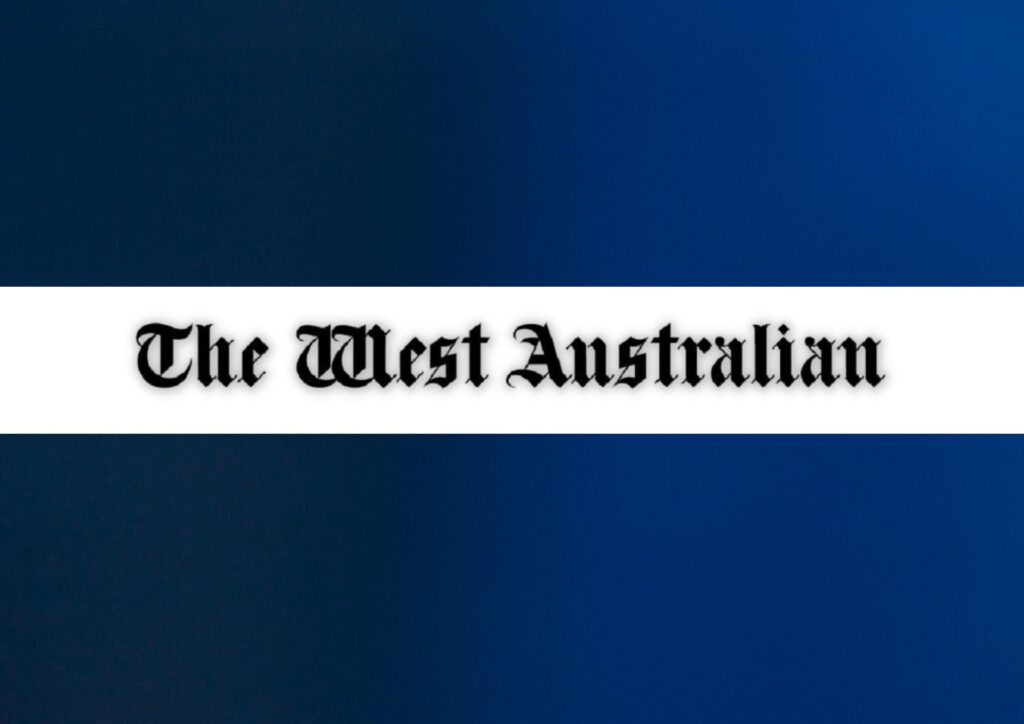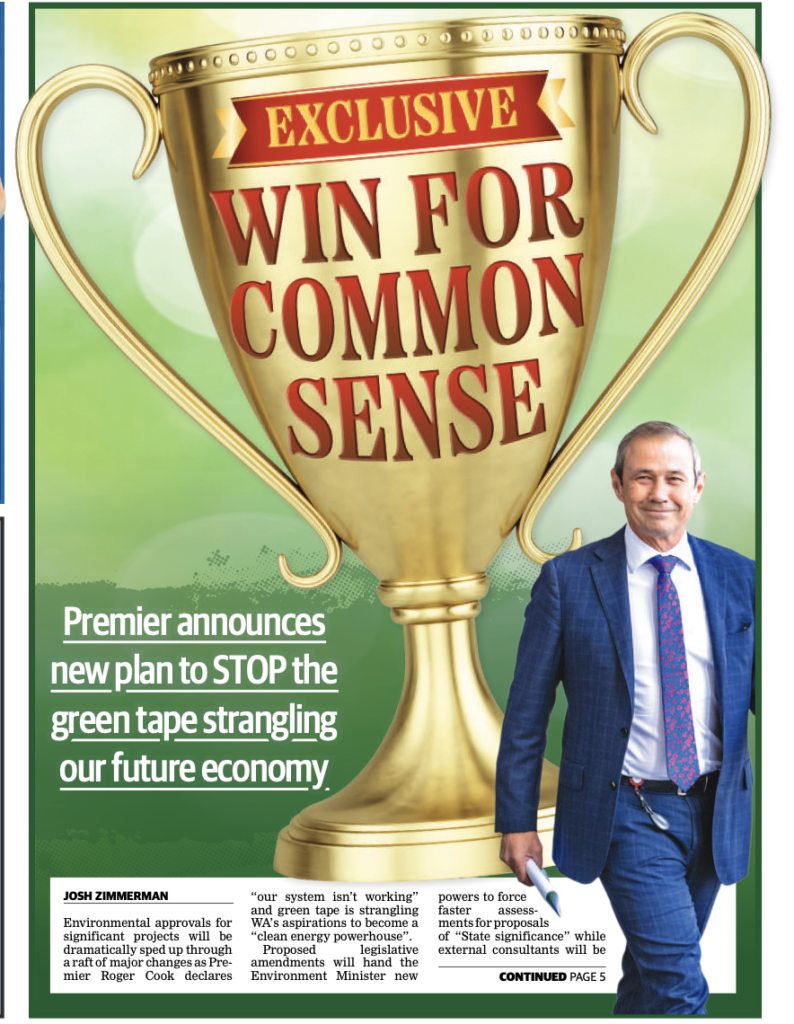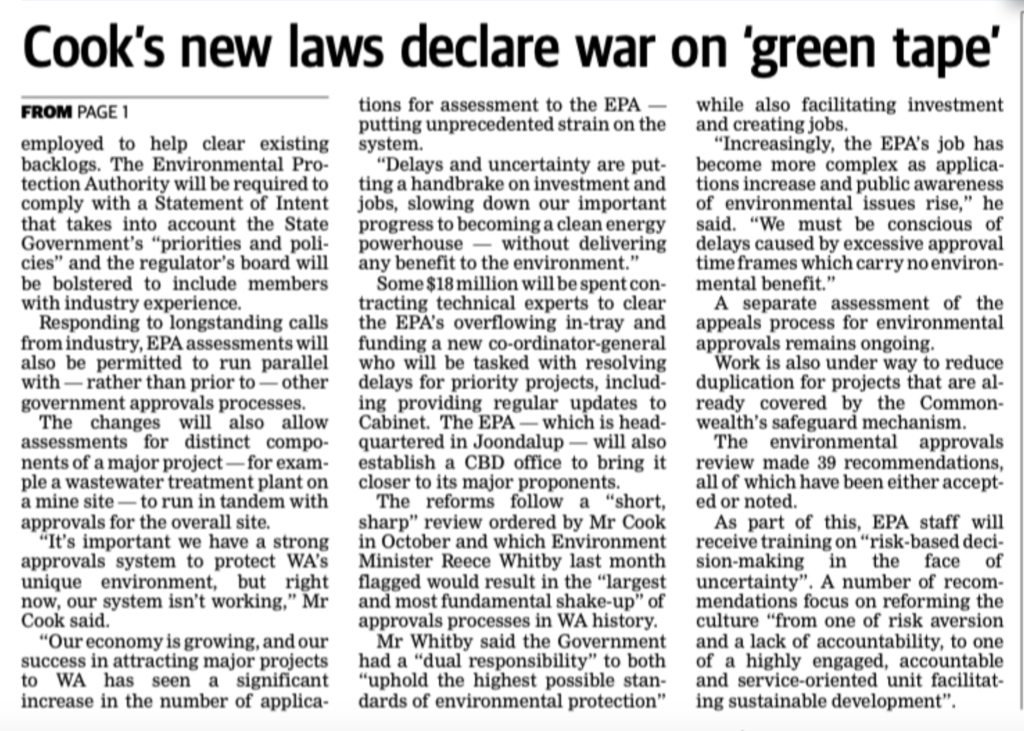


Article by Josh Zimmerman courtesy of the West Australian.
Environmental approvals for significant projects will be dramatically sped up through a raft of major changes as Premier Roger Cook declares “our system isn’t working” and green tape is strangling WA’s aspirations to become a “clean energy powerhouse”.
Proposed legislative amendments will hand the Environment Minister new powers to force faster assessments for proposals of “State significance” while external consultants will be employed to help clear existing backlogs. The Environmental Protection Authority will be required to comply with a Statement of Intent that takes into account the State Government’s “priorities and policies” and the regulator’s board will be bolstered to include members with industry experience.
Responding to longstanding calls from industry, EPA assessments will also be permitted to run parallel with — rather than prior to — other government approvals processes.
The changes will also allow assessments for distinct components of a major project — for example a wastewater treatment plant on a mine site — to run in tandem with approvals for the overall site.
“It’s important we have a strong approvals system to protect WA’s unique environment, but right now, our system isn’t working,” Mr Cook said.
“Our economy is growing, and our success in attracting major projects to WA has seen a significant increase in the number of applications for assessment to the EPA — putting unprecedented strain on the system.
“Delays and uncertainty are putting a handbrake on investment and jobs, slowing down our important progress to becoming a clean energy powerhouse — without delivering any benefit to the environment.”
Some $18 million will be spent contracting technical experts to clear the EPA’s overflowing in-tray and funding a new co-ordinator-general who will be tasked with resolving delays for priority projects, including providing regular updates to Cabinet. The EPA — which is headquartered in Joondalup — will also establish a CBD office to bring it closer to its major proponents.
The reforms follow a “short, sharp” review ordered by Mr Cook in October and which Environment Minister Reece Whitby last month flagged would result in the “largest and most fundamental shake-up” of approvals processes in WA history.
Mr Whitby said the Government had a “dual responsibility” to both “uphold the highest possible standards of environmental protection” while also facilitating investment and creating jobs.
“Increasingly, the EPA’s job has become more complex as applications increase and public awareness of environmental issues rise,” he said. “We must be conscious of delays caused by excessive approval time frames which carry no environmental benefit.”
A separate assessment of the appeals process for environmental approvals remains ongoing.
Work is also under way to reduce duplication for projects that are already covered by the Commonwealth’s safeguard mechanism.
The environmental approvals review made 39 recommendations, all of which have been either accepted or noted.
As part of this, EPA staff will receive training on “risk-based decision-making in the face of uncertainty”. A number of recommendations focus on reforming the culture “from one of risk aversion and a lack of accountability, to one of a highly engaged, accountable and service-oriented unit facilitating sustainable development”.